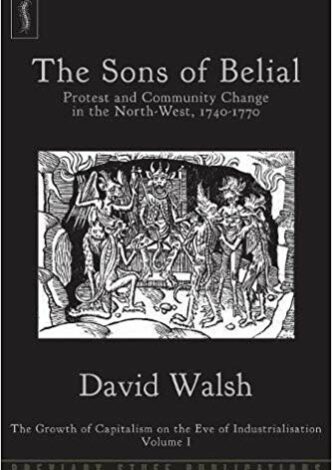This is a very good book, extremely informative. Even though the bulk of the book is set in the North West of England, there is a wider historical scope. Which would be very useful for the student or historian of the period.
The book opens with an in depth examination of developing economic theories. It charts the shift from a largely agrarian, paternalistic society, to an industrialising nation, and rapid urbanisation. Furthermore, the study looks at the development of a mercantilist philosophy that stoked the growth of empire, and the wars of aggrandisement. Especially the Seven Years War, which was quite possibly the first world war. As the main protagonists, Britain and France fought over their Empires, from India and North America. These conquests, which would lead to hundreds of thousands of deaths, opened up new markets for the mercantile capitalists, and were seen to be in the nation’s interests. In line with this were massive changes in rural life. Enclosure Acts, and big farms buying up the smaller holdings, led to changes in agricultural patterns, but also social life. One of the major changes was the role of the agricultural labourer. They would normally be hired on a yearly basis at a fair. Most would live on the farm with the farmer and his family, and eat at the table, and be involved in the day to day running of the farm. The prospects of the farm were in their interests. Now, they were more likely to be employed on an ad hoc daily basis, with long periods of un-, or under-employment, and reliant on the parish for their winter bread. Many were pushed out of the village, towards the big growing cities and the developing work prospects.
Meanwhile, there were also big changes in the weaving industry. Some people, as above, worked in a rural setting, in what was known as a cottage industry. They would weave as a family, but also have a smallholding growing crops, and occasionally work on bigger farms during harvest time for example. The whole family would be suitably engaged in this group of employees. With the more skilled textile worker, usually working in a more urban setting, going through a seven-year apprenticeship and then joining a trade guild. These trade guilds were an early predecessor to the trade unions, but also very different in a lot of ways. The similarities included sickness and death benefits. But they were also designed to stop untrained workers from undermining their working practices, and their pay structures. This was all undermined with the growth of the large factories, and development of machines. These weakened the position of skilled workers, and increased output. Women and children were employed, and wages dropped. A real and current economic theory held highly by the factory owners, was that if you paid the workers well, they would only work as much as they had too. Therefore, work a few days, then go down the pub. With the advent of the protestant work ethic, many saints days fell into disuse, and wages dropped to such a level, that 80-hour working weeks were common. Similar to today, but slightly different with zero hours, and large household debt.
The book then looks at how the workers’ movements developed. Some using mass protest, and organisation, with others looking to change the political scene. Electing their own people on a very local level. The book needs to be read, to see how these struggles develop. All in all a very good book, which mainly charts the development of economic change in this country on the eve of industrialisation, and those who struggled against it.
Steve Mills
July 2018
